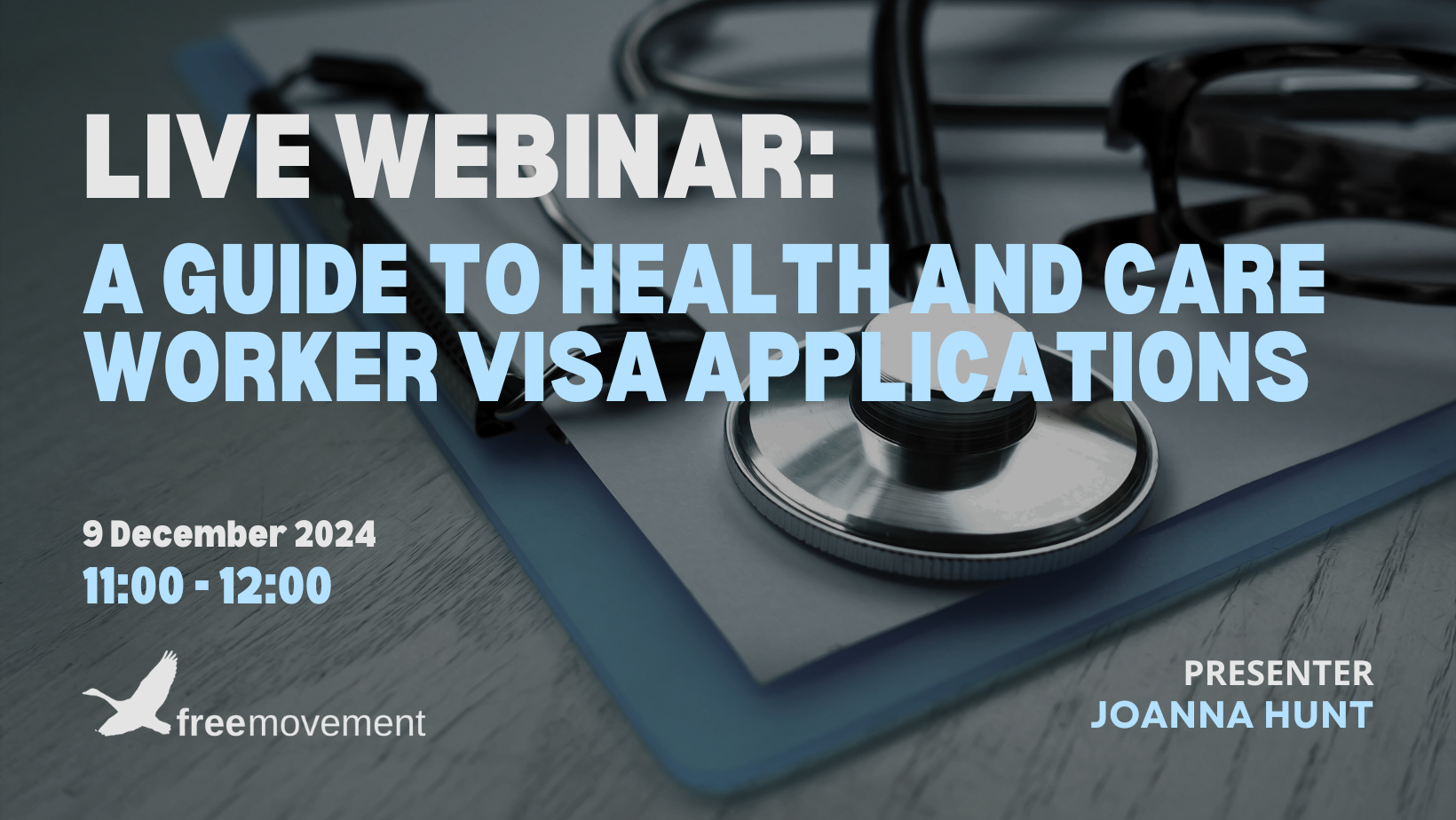The method for figuring out and supporting survivors of trafficking has been significantly degraded over the previous couple of years and on this article I take a look at the place in relation to grants of depart made to these individuals who have been recognized as survivors of trafficking.
Some current choices contemplating these points might be discovered right here: Home Office policy on leave to remain for potential trafficking victims found unlawful, The Home Secretary’s unlawful secret policy to withhold leave to remain from victims of modern slavery and Deportation order exclusion in discretionary leave policy for victims of modern slavery found unlawful. There are a number of different challenges to the coverage at the moment underway.
A worsening scenario for survivors
In accordance with article 14 of Council of Europe Conference on Motion In opposition to Trafficking in Human Beings (ECAT) an individual who has been recognised as a survivor of trafficking, i.e has acquired a optimistic conclusive grounds determination (the second and closing stage of the identification course of), is entitled to a renewable residence allow (i.e. a grant of depart) in a single, or each, of the next conditions:
- the competent authority (determination making physique) considers that their keep is critical owing to their private scenario;
- the competent authority considers that their keep is critical for the aim of their co-operation with the competent authorities in investigation or felony proceedings.
Within the explanatory report to ECAT, it’s made clear that an evaluation of a survivor’s ‘personal situation’ for the needs of granting a residence allow ought to soak up “a range of situations, depending on whether it is the victim’s safety, state of health, family situation or some other factor which has to be taken into account”.
Nevertheless, in recent times the interpretation of ‘personal situation’ within the Dwelling Workplace’s Modern Slavery Statutory Guidance has moved away from this, getting narrower with each iteration.
On thirtieth January 2023, the policy was amended with the intention to replicate section 65 of the Nationality and Borders Act 2022. Now ‘Temporary permission to stay for confirmed victims of human trafficking or slavery‘ (known as VTS leave) will be only granted to survivors of trafficking with a positive conclusive grounds decision in order to:
- Assist the person in their recovery from any physical or psychological harm arising from their exploitation. However, if the person can get assistance in their home country, then permission to stay may not be granted.
- Enable the person to seek compensation if they are unable to pursue this remotely.
- Enable the person to co-operate with authorities in connection with an investigation or criminal proceedings. Again, it must be confirmed that it is necessary for the person to be physically present in the UK to cooperate with the investigation or prosecution.
Each of these reasons to grant leave are now much narrower than in the pre-2023 guidance, but particularly the first which previously stated that leave could be granted where “necessary owing to personal circumstances”. It is difficult to see how this current approach is in line with article 14 of Council of Europe Convention on Action Against Trafficking in Human Beings.
Decrease in number of grants of leave
In Helen Bamber Foundation’s August 2023 report “Leave in Limbo – Survivors of Trafficking with uncertain immigration status” important considerations have been expressed concerning the variety of survivors of trafficking who had been recognised as such by the Dwelling Workplace however had not been granted any depart to stay to allow them to recuperate from their traumatic experiences.
A Freedom of Data request confirmed that in 2022, solely 214 recognised survivors of trafficking who had been referred into the Nationwide Referral Mechanism – the framework designed to determine and defend victims of trafficking and trendy slavery – and acquired a optimistic conclusive grounds determination have been granted Fashionable Slavery discretionary depart.
Unsurprisingly, new unpublished information from a current Freedom of Data request reveals that for the reason that change in coverage in January 2023 there was a stark lower within the variety of grants. In 2023 nearly 13,000 non-UK nationals have been referred to the Nationwide Referral Mechanism as potential victims of trafficking.
Of these, 3,139 adults have been confirmed as victims of trafficking however solely 113 recognised grownup victims of trafficking acquired a grant of VTS depart to help with their restoration. Fewer than 10 folks acquired a grant of depart in order that they might help the authorities in prosecuting their traffickers. That is round half of the grants of depart made in 2022 below the earlier coverage.
Grants of depart for brief durations of time don’t help restoration
The few survivors who have been granted depart to help their restoration hardly ever acquired it for a interval that fails to replicate the long-term nature of restoration and the necessity for stability to allow them to meaningfully interact in therapeutic help.
In 2023:
- 24 folks acquired lower than 6 months’ depart
- 36 folks acquired between 6-12 months’ depart
- 39 folks acquired between 13-24 months’ depart
- 14 folks acquired depart for a interval over 24 months
The vast majority of current grants I’ve been made conscious of have been for 12 months or much less. One very regarding instance of an individual receiving such a brief interval of depart that their depart expired earlier than they even acquired their biometric residence allow, rendering the grant lower than nugatory.
These shorts durations of depart are inadequate. They fail to think about the long-term wants that survivors have, notably when the upheaval that the transitional interval after a grant of depart, is taken into account.
The steerage requires {that a} determination on whether or not an individual is entitled to go away have to be routinely thought-about after a optimistic conclusive grounds determination is made. In follow, unsurprisingly when the above information is taken into account, grants of depart are solely made after robust representations are submitted, often accompanied by medical proof.
Refusals of depart
The first purpose for the refusals, that I’ve been made conscious of, are that an individual would theoretically be capable of entry therapeutic help of their house nation. These are notably commonplace when an individual has not but been capable of interact in remedy within the UK, for instance if they’re on a ready record or they’re between remedy varieties.
I’m not capable of touch upon the supply of therapy outdoors of the UK however a few of the sources relied upon that we’ve got seen have been regarding and seem weak and flawed, even to a lay particular person with out knowledgeable information of the nation in query.
These choices are additionally made no matter whether or not the particular person has an excellent asylum declare or not. It is because the latest coverage now not requires the choice maker to hold out an evaluation as as to whether the particular person is susceptible to re-trafficking. Grants of depart below R (KTT) v Secretary of State for the Dwelling Division [2021] EWHC 2722 (Admin), which discovered that survivors of trafficking ought to be granted depart whereas their asylum declare is pending, are now not being made (a write up of this may be discovered here).
The refusals of depart following recognition that they’ve survived trafficking are understandably inflicting misery and confusion to people. They’re receiving choices that state they don’t seem to be entitled to a grant of depart as a result of they’ll return to their house nation and obtain therapy there, even after they have an excellent asylum declare the place they’re claiming the alternative.
I’ve not seen any refusals the place consideration has been given as to whether there are any psychological or bodily obstacles to an individual receiving therapy of their house nation, no matter whether or not it’s theoretically accessible. It’s clinically accepted that when a person receives long-term specialist remedy in a trusting therapeutic setting that they expertise as secure and safe, then their prospects of eventual restoration are larger.
If however, the particular person is in an setting perceived to be threatening and harmful, for instance a rustic for which the specter of persecution or re-trafficking exists, then their psychological situation could be extra prone to deteriorate and their skill to have interaction successfully with any remedy, no matter its availability, could be severely curtailed.
The place an individual could not qualify below present coverage for a grant of depart following identification as a sufferer of trafficking, they could as a substitute be a refugee entitled to a grant of depart on that foundation. It’s evident that survivors who could be at elevated danger of re-exploitation or additional hurt if returned to their nation of origin are steadily having to depend on the UK asylum system as a ‘safety net’ if they’ve any hope of receiving long-term help to help their restoration.
Current improvement
On 11 July 2024 the coverage was up to date to substantiate that the Dwelling Workplace are:
pausing all choices that take into account grants of non permanent permission to remain for victims of human trafficking or slavery (VTS) till additional discover. It is a non permanent pause while we take into account our method to granting VTS the place there’s a want to help in restoration from bodily or psychological hurt close to the sufferer’s expertise of exploitation.
At this stage we’ve got no additional info on how lengthy this pause will take or how the choice making could or could not change. It’s also not clear if choices for individuals who could be entitled to VTS on the idea that they’re in search of compensation or co-operating with felony proceedings because the wording is pretty ambiguous. I perceive that practitioners within the sector are participating with the Dwelling Workplace to get additional readability on this.
It’s possible that this pause has been prompted by the massive variety of authorized challenges which were lodged for people, none of which have but been heard substantively. This stays a really dwell challenge and we are able to solely hope that coverage might be amended favourably.
Conclusion
The lower within the grants of depart to stay mixed with the considerably lowered entry to the asylum system will result in much more survivors being left in limbo and at elevated danger of being re-trafficked or additional hurt. The intention behind granting survivors of trafficking restricted depart to stay is to help with an individual’s restoration or to allow them to co-operate with felony proceedings.
The earlier authorities’s method failed to do that and choices made below this coverage are worsening folks’s psychological well being and growing their restoration wants. This in flip makes folks much less prone to need to interact with the police in authorities, hindering any makes an attempt to prosecute their traffickers.
If the brand new authorities is to make sure that the UK is a rustic that genuinely presents safety to survivors of trafficking then we want a system whereby all survivors with a optimistic conclusive grounds determination are routinely granted help. This contains significant long-term depart to stay and recourse to public funds, for a minimum of 30 months with a path to settlement.






